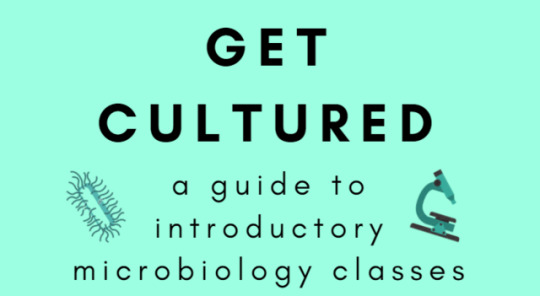#I listened to The Plagues on loop while drawing this /j
Text
Oh my god I finally finished it.⚰️✨️

A drawing of the lovely Fanfiction One Who Holds A Star by @justaduckarts . It only took me 17 hours but it was so worth it.

I can't decide, which one I prefer more but I would love to hear your thoughts on this. 💕🌻
Here are the close-ups






Just coloring and sketch


I thought Star Mom was a mix of biblically angels and clouds, which is why I drew her with only pair of eyes lmao.
#I'm so excited to show yall this#star holder au#justaduckarts#lunar fnaf#god au#security breach au#Eclipse my beloved 😩💕#your honor I want to smooch him so bad#Oc(Mary) Used to cry but I took that out since it was to dramatic#the background is a mess because I had other plans but forgot#I listened to The Plagues on loop while drawing this /j#myart🌻
71 notes
·
View notes
Photo

I love microbiology but it is a difficult class and is made even more difficult when you have a bad prof. I started this post after I took an introduction to microbiology class but waited to finish it until I completed an upper year microbiology class this past semester. This way I can also provide insight and tips on what will help you not only in the class but also how to make sure you are prepared for upper year classes.
Topics you may cover in your intro microbio class:
History of microbiology
Microbial taxonomy (naming and classification)
Microscopy and specimen preparation
Prokaryotic cell structure and function
Microbial nutrition and growth
Control of microorganisms by chemical and physical agents
Microbial metabolism (including energy, enzymes, regulation, chemosynthesis, photosynthesis, and biosynthesis)
Microbial genetics (including replication, mutation, gene expression, gene regulation, recombination, plasmids, etc.)
Virology
Immunology
And areas of/related to microbiology you may explore in upper classes may include: environmental microbiology, food and industrial microbiology, immunology, medical microbiology, molecular genetics, prokaryotic physiology, virology, and more!
Tip #1: Understand new material at the end of every week
Microbiology is a content heavy course. Even if you’re busy with other classes and responsibilities, do a thorough review of new content you’ve learned over the past week. Give yourself time to get help/go to office hours in case you don’t understand a concept (you can’t do this if you leave studying till the last minute).
Tip #2: Know the names of important microorganisms
This all depends on your prof. I had an insane prof who wanted us to know the names of every single microbe he mentioned in passing, but this shouldn’t be the case for everyone. The prof for my upper level microbiology class provided bonus marks if we could state the specific genus of a microorganism in any of our examples on the final exam. If you can, talk to students who have taken the class before for more insight.
Regardless, make sure you know the species, genus, etc. of microbes that your prof spent a significant amount of time talking about or ones that come up more than once.
Tip #3: Pay attention when you’re learning about metabolism
I say this for two reasons: (1) Metabolism is a difficult topic to understand and (2) It will benefit you to have a good understanding of metabolism now. Metabolism covers a wide range of ideas and concepts -- having a good understanding will help you in upper level bio/biochem classes and will help you link ideas together.
Tip #4: Study the material in different ways
Revise your notes in a variety of ways. I prefer to type my notes and write them out after class. Typing allows me to get all the info down, I can insert diagrams from lecture slides as I go, and leaves me with a detailed study guide to use when I’m studying for finals (I also add material from the textbook not covered in lectures to my typed notes after class). Writing out my notes afterwards reinforces the material, allows me to shorten my notes to the important stuff (e.g. I only draw necessary diagrams), and allows me to reorganize the material (e.g. make acronyms, put the info into a table, compare and contrast 2 concepts like cellular respiration and photosynthesis).
You can also use other methods to study such as flashcards, mind maps, read the material out loud, etc. Only use a method if it actually works for you -- for example, lots of people use flashcards to study but I rarely use them.
Another really good way to study is to make a practice test or at least think about how your prof will test certain concepts. This is a really helpful strategy for preparing for multiple choice and written questions.
Tip #5: Study with friends
This also ties into the idea of thoroughly learning new material at the end of every week. Plan a weekly study session or talk to your friends and hold each other accountable for staying on top of things.
I usually just met with one or two of my friends before each midterm. We would find a room with a whiteboard and spend an entire afternoon going over our notes together. I had other friends who would meet at least once a week and review the past week’s material together.
Tip #6: Draw it out
I personally love using whiteboards to study and would definitely recommend buying your own. If you don’t have one though, find an empty classroom with a whiteboard or just draw it out on a blank page. Don’t draw out every diagram you have available to you -- find the most useful ones! I like to draw out a process and then write down the description of the process side by side.
I also like to combine diagrams that I find useful. Drawing diagrams also works if you’re trying to compare and contrast processes. Having all the info laid out in one place can help you see what is truly similar or different, rather than trying to memorize the processes as separate things.
For example, I had a few different diagrams for photosynthesis in my notes. Instead of studying them separately I combined them together so I had all the info in one place.
Tip #7: Utilize all the resources available to you
Ask questions! Go to office hours! Most profs are happy to help meeting with them one-on-one really ensures you are getting a good understanding.
You can also ask your lab TA for clarification on concepts, because often the content you cover in labs is tied to content covered in lectures. My TA heard us all complaining about how our prof did not properly explain a difficult concept. So, she did a quick search and found the name of a youtube channel she remembered learning from in her undergrad.
As well, if the textbook for your class proves to be useful then actually use it! I like to read over the textbook chapter before class because then I can focus on understanding the fine details during lecture. (I’ve also compiled some online useful books and online resources at the bottom of this post for you to check out.)
Advice specifically for labs:
Use aseptic technique! Wash your hands, work close to the flame, etc. If you’re not sure about something, wait and ask your TA. And try not to spill anything. Someone in my lab spilled a tube of E.coli broth on their lab notebook which then had to be autoclaved, which meant they had to buy a new notebook.
DON’T FORGET TO FLAME THE LOOP!!
Even though you’ll be working in partners make sure you can do everything on your own. It might be easier to have your partner hold a piece of equipment while you do something else but it won’t help you when you’re doing the same work alone during a lab exam or as a research assistant.
Make sure you can do a Gram stain properly. If you can’t do a proper Gram stain consistently you can ask your TA if you can practice on a few slides or have them watch you do a Gram stain to correct any mistakes you’re making.
Be specific when answering questions. Your TA wants to make sure you know exactly what you’re doing. Also, write down the full name (species + genus) of the microorganism you’re working with the first time you mention it and then feel free to use the abbreviated form after (i.e. write down Escherichia coli first but refer to it as E.coli thereafter)
Listen and be safe. Your TA will probably stress safety a lot but make sure you pay attention if they tell you need to take certain precautions with certain microorganisms (especially where to dispose certain samples).
Have fun! My favourite memory of the lab was when we were looking at samples we had prepared from soil the week prior. Everyone was comparing the fungi that had grown in their petri dishes and trying to see who had the most “fuzzy” sample.
Plan your time well. Read through your prelab carefully and make note of tasks that may take up more time (waiting for molten agar to cool, waiting for a sample to dry so you can heat fix the slide, etc.).
Label everything! You really don’t want to forget which test tube contains which organism or which tube is which when performing a serial dilution
Tie in things you do in the lab to things you’ve learned in lectures. You’ll make lecture material more interesting and you might learn different applications of what you’re doing in the lab.
At the end of the lab: Dispose of your materials in the proper waste bins! Wipe down your lab bench! Wash your hands!
Microbiology resources:
Some books related to microbiology/cell biology (note: these books aren’t meant as study materials but discuss some really interesting topics related to microbiology): The Gene by Siddhartha Mukherjee, I Contain Multitudes: The Microbes Within Us and a Grander View of Life by Ed Young, Microbe Hunters by Paul de Kruif, Missing Microbes: How the Overuse of Antibiotics is Fueling Our Modern Plague by Martin Blaser, and Spillover: Animal Infections and the Next Human Pandemic by David Quammen.
For my class I used Prescott’s Microbiology ( Willey, Joanne M., Sherwood, Linda M., Woolverton, Christopher J.; 8/e) and A Photographic Atlas for the Microbiology Laboratory (Leboffe, M.J. and Pierce, B.E.)
For online resources I will always recommend Khan Academy. I found they didn’t have everything I needed for this class specifically but the topics they did cover were explained well.
Wikipedia! I’ve had multiple profs this year tell me to use Wikipedia. Please don’t go citing Wikipedia in any of your lab reports (but you can look at their references at the bottom of page to find more info). Wikipedia is good for finding up to date information, especially for information related to microbial taxonomy.
Some Youtube channels that have helpful videos include: Armando Hasudungan, Bozeman Science, Crash Course (also I’m pretty sure there’s a song about the Krebs Cycle out there)
Check out my other posts here!
#microbiology#biology#studyblr#university#studyquill#academla#etudiance#areistotle#intellectys#phocusing#phctcsynthesis#studyplants#studypetals#mine#my posts
1K notes
·
View notes